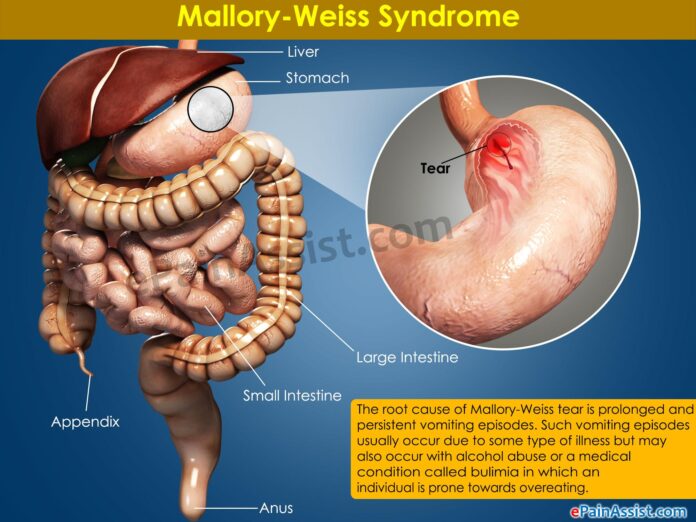
Mallory-Weiss syndrome is a condition characterized by the development of tears in the lining of the esophagus or stomach. These tears are often the result of severe vomiting or retching and can lead to symptoms that range from mild to severe. Understanding the symptoms of Mallory-Weiss syndrome is important for early recognition and treatment of the condition. In this article, we will explore the common symptoms associated with Mallory-Weiss syndrome.
1. Sudden Onset of Upper Gastrointestinal Bleeding
One of the hallmark symptoms of Mallory-Weiss syndrome is the sudden onset of upper gastrointestinal bleeding. This can manifest as vomiting blood (hematemesis) or passing dark, tarry stools (melena). The bleeding is typically caused by the tears in the esophagus or stomach, and can be mild to severe in nature. It is important to seek medical attention immediately if you experience any signs of upper gastrointestinal bleeding.
2. Abdominal Pain
Individuals with Mallory-Weiss syndrome may experience abdominal pain, particularly in the upper abdomen. The pain can range from mild to severe and may be accompanied by nausea and vomiting. The abdominal pain is often a result of the tears in the esophagus or stomach, and can worsen with vomiting or retching. If you experience persistent or severe abdominal pain, it is important to seek medical evaluation.
3. Difficulty Swallowing
Another common symptom of Mallory-Weiss syndrome is difficulty swallowing (dysphagia). The tears in the esophagus can cause a sensation of obstruction or discomfort when swallowing food or liquids. This symptom can be concerning and may indicate a more severe tear or obstruction in the esophagus. If you experience difficulty swallowing, it is important to seek medical evaluation.
4. Vomiting and Nausea
Individuals with Mallory-Weiss syndrome may experience recurrent episodes of vomiting and nausea. The vomiting may contain blood or appear as coffee ground-like material, indicating upper gastrointestinal bleeding. It is important to monitor for any changes in the frequency or severity of vomiting, as this can be indicative of the progression of Mallory-Weiss syndrome.
5. Rapid Heart Rate
Severe bleeding associated with Mallory-Weiss syndrome can lead to a rapid heart rate (tachycardia), lightheadedness, and dizziness. These symptoms are indicative of significant blood loss and should prompt immediate medical attention. It is important to monitor for any changes in heart rate, particularly if you experience other symptoms of Mallory-Weiss syndrome.
6. Low Blood Pressure
In severe cases of Mallory-Weiss syndrome, individuals may experience low blood pressure (hypotension) and signs of shock. This can include a rapid, weak pulse, pale or clammy skin, and decreased urine output. These symptoms are medical emergencies and require prompt evaluation and treatment by medical professionals.
7. Fever and Chills
In some cases, individuals with Mallory-Weiss syndrome may develop fever and chills, particularly if there is an associated infection. These symptoms can indicate a more severe or complicated course of Mallory-Weiss syndrome and should prompt immediate medical evaluation.
8. Fatigue and Weakness
Severe bleeding associated with Mallory-Weiss syndrome can lead to fatigue, weakness, and overall feeling unwell. These symptoms are often indicative of significant blood loss and should be monitored closely. It is important to seek medical attention if you experience persistent or worsening fatigue and weakness.
9. Anemia
Chronic or recurrent upper gastrointestinal bleeding associated with Mallory-Weiss syndrome can lead to anemia, characterized by a low red blood cell count and decreased hemoglobin levels. Symptoms of anemia may include weakness, fatigue, and shortness of breath. It is important to monitor for any signs of anemia and seek medical evaluation if you experience these symptoms.
10. Fainting or Loss of Consciousness
In severe cases of Mallory-Weiss syndrome, individuals may experience fainting or loss of consciousness due to significant blood loss and hypotension. These symptoms are indicative of a medical emergency and require immediate intervention and treatment by healthcare professionals.

















